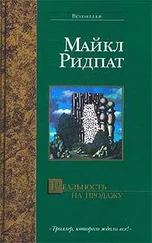For all her faults, she would be a good mother. And if you were going to bring up a child alone, Iceland was the place to do it.
There were many questions to be answered. Would Ingileif allow him access to Ási? The boy had his own family, his own stepfather in the shape of Hannes. Or perhaps this Hannes guy acted as Ási’s dad. Presumably Ási had no idea who his real father was.
There would be problems, but Magnus would find a way to see his son again.
There were a lot of things Magnus could or should be doing. There were the previous day’s interview reports from Saudárkrókur to go through, and he wanted to do some of his own research on the Columbus letter. How likely was it to be real? Were there a lot of Columbus forgeries out there?
But instead he typed ‘Tryggvi Thór Gröndal’ into the criminal records database. There was just a brief mention that Detective Sergeant Tryggvi Thór had been charged with corruption in 1996, but that the charges had been dropped. No explanation.
Nineteen ninety-six was before the digitization of all criminal records, so, with a glance at Vigdís scrolling through her own computer screen, Magnus called Records and asked them for the file from their archives. Half an hour later one of the clerks brought it up and dropped it on his desk. It was extremely thin.
‘Is this it?’
‘That’s all we’ve got,’ said the clerk. She didn’t hang around to chat.
Magnus opened the file. Just one sheet of paper, from the court, recording that charges had been dropped.
That wasn’t right. Even if Tryggvi Thór had only been under arrest for a few days, a few hours, there should be much more paperwork than that. Especially if a policeman was the suspect: a case like that would have lawyers all over it and good record-keeping would become doubly important.
The file had been emptied. By whom? And when?
Kelly emerged from her hotel and consulted the map she had grabbed from the front desk. The hotel was situated halfway up the hill in the middle of Reykjavík, and she decided to begin with the big concrete church at its top. Nancy had said she was feeling tired and had urged Kelly to go out for a stroll, while she went back to bed for an hour or two. Kelly was supposed to knock on her door at eleven.
Kelly loved Reykjavík. It was small enough to be manageable, large enough to be busy. The view from the top of the hill was amazing: mountains and sea on all sides, and those cute little red, white and blue houses. She liked just looking in the stores; with the exception of the odd tacky tourist joint, they were original and imaginative. And expensive. Kelly had quickly realized the whole of Iceland was expensive, and had decided to let Grammy pay for everything. She had saved some money over the summer in Nantucket, but she would need it over the coming semester at college.
In the end, she decided to splash out on a cup of coffee in a café that looked more Moroccan than Icelandic. She thought about what her grandmother had told her the day before, about the wampum and the Columbus letter being fake, about the whole thing being a hoax. She still couldn’t believe her grandmother, normally so proper and so sensible, had done that. Part of her admired the old lady; part of her was shocked. Nancy herself seemed to regret it deeply.
Kelly believed her father really had been joking when he had said that Nancy had planted the wampum in Greenland, but it was his intuition about his mother that had sprung the idea into his mind. Kelly had been mortified back in ’Sconset when she thought she had misled Eygló. Turned out she hadn’t misled her after all.
And now Kelly was the bearer of the secret.
Nancy said that she had done her duty now she had told the TV people; it was up to them what they did with the information. It sounded as if they were going to go ahead with the documentary anyway and bury the whole thing. Nancy had said she was happy to go along with what they decided. Part of Kelly fervently agreed; part of her knew it was deeply wrong.
Now she wished her grandmother hadn’t told her anything about it. She would just have to place her trust in the old lady and her decision.
She got back to the hotel and knocked on Nancy’s door. No reply. She knocked a couple more times and listened. Nothing.
Kelly was worried as she made her way back to her own room down the corridor. She knew she had no reason to be: Nancy was very tired and must be sleeping soundly.
She tried to read a book, all the while wondering how long to leave it until she tried again.
She gave it thirty minutes. Still no reply. She was becoming more worried; she knew she shouldn’t be, but she was. She considered asking the hotel to open the door, then rejected the idea. But the worst that could happen was that Nancy would be a little upset with her. Nancy had looked pale — maybe she was ill rather than just exhausted.
So she went downstairs. The manager was totally understanding, and a minute later he had opened the door to Nancy’s room.
Nancy was lying on her back, fully clothed, her eyes shut.
‘Thank you,’ said Kelly to the manager, and she gently touched her grandmother’s arm. ‘Grammy? Grammy, wake up!’
Nothing.
‘Grammy!’ The old lady looked very still. No sign of her chest moving at all. ‘Grammy!’
‘Let me have a look.’ The manager hurried over to the bed and felt Nancy’s brow. Then he put his ear to her chest. Then he felt for a pulse. He turned to Kelly, his face grave.
‘I’m sorry.’
Flights from Iceland to Greenland departed from the small City Airport in the heart of Reykjavík, rather than the international airport at Keflavík. Magnus decided to take the direct route over the hill at Thingholt, rather than the faster route around it.
He made for the Hallgrímskirkja on the summit and parked outside, right underneath the statue of Leif Erikson staring westwards over the city towards Vinland, his battleaxe by his side. He strolled down Skólavördustígur, the short straight street that ran down from the church towards the centre of the city. There were galleries on either side, and Magnus paused outside one of them to look in the window.
Behind the displays of intricate silver jewellery and stained glass, he could see Ingileif. She was speaking to a well-dressed middle-aged woman, possibly a Danish or German tourist, and showing her some fish-skin bags, subtly patterned in silver, yellow and blue.
His heart lurched. Any man would think Ingileif was attractive. But to Magnus, she was beautiful. Absolutely beautiful.
And she was the mother of his son.
He wasn’t sure what to say to her about that, how to acknowledge it, whether to acknowledge it. And the careful policeman in him recognized that Vigdís might be wrong; Ási might be someone else’s child.
Ásgrímur. Magnus grinned at the name. It would hardly be the coolest name in an American elementary schoolyard, and its diminutive would be even worse. But it wasn’t just Ingileif’s father’s name. He in turn had been named after a Viking ancestor mentioned in the sagas, who had lived on a farm near Mount Hekla and killed a neighbour, his foster-brother Gaukur of Stöng. It was the kind of bloodthirsty detail Magnus would have loved as a boy. Would Ási?
Ingileif would have known how much Magnus would appreciate the name. Maybe that was one of the reasons she had chosen it.
The doorbell rang as the tourist left the shop, her purchase in a shopping bag. Magnus looked through the window into the gallery to see Ingileif staring right back at him.
Their eyes met. It was difficult to read Ingileif’s expression. Questioning.
If she was asking a question, Magnus didn’t know the answer. He turned on his heel and walked rapidly back up the hill to where he had parked his car, feeling like a bit of a weirdo. Police officers were not supposed to stalk their former girlfriends.
Читать дальше












